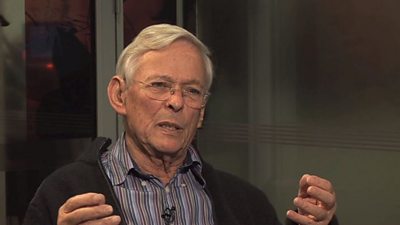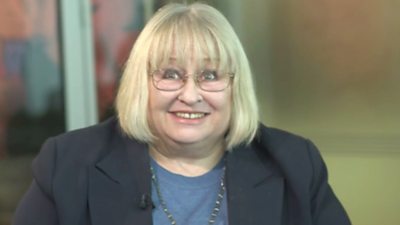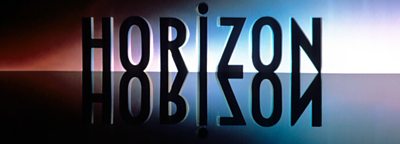It took until 1990 for the ����tv to appoint a women to the position of Editor, Horizon. It had not been a straightforward journey for Jana Bennett who took the job, having faced some less than positive views about the role of women in broadcasting. Up to this point, Jana had followed a successful programme making career, beginning in 1979, after she completed the ����tv’s News Trainee scheme.
She worked on The Money Programme, Nationwide and Newsnight, and set up ‘Antenna’ which looked at science and technology with a current affairs edge. She explains how she had to be made aware of the significance of her new role on Horizon, given her previous experience working with very senior women elsewhere in the ����tv.
Jana was series editor on such editions of Horizon as ‘Life is Impossible’ (1993) an investigation into how life began on earth, ‘No Ordinary Genius’ (1993) examining the life and work of physicist Richard Feynman, ‘Hide and Seek in Iraq’ (1992) on weapons inspections in Iraq, and ‘Assault on the Male’ (1993) which dealt with declining male fertility.
Other credits include ‘Inside Chernobyl Sarcophagus' (1996), 'Fermat's Last Theorem' (1996), 'Molecules with Sunglasses' (1992), and 'Ulcer Wars' (1994). Occasional special series within the Horizon strand, also under Jana’s editorship, include the three-part 'Red Star in Orbit: The Invisible Spaceman’ (1990), about Soviet science and space exploration.
At the time, her appointment was considered controversial by some, with critics asserting that she had been brought in mainly to improve ratings. However for Jana what was important to her and the series, was a commitment to telling good science stories, not for just the scientific community but also to non-specialists.
Interviews
-

Peter Goodchild
After having trained in studio direction Peter Goodchild (the longest surviving editor of the programme) was asked by Aubrey Singer, then Head of ����tv Science and Features, to make a choice. Did he want to be an educationalist or an entertainer for the rest of his ����tv career? -

Alec Nisbett
Alec Nisbett, has been described by fellow programme makers as ‘the quintessential Horizon producer’, never shying away from putting hard science on TV. -

Deborah Cadbury
The first programme Deborah worked on for the ����tv was on a series which was something of a training ground for many a Horizon producer, Tomorrow's World (����tv: 1965-2003). She won many awards for her work on Horizon including Emmys and BAFTAS. -

Simon Campbell-Jones
Simon’s first film for Horizon was broadcast in January 1969, and was called The Miraculous Wonder: the Human Eye. Narrated by Christopher Chataway, the programme asked if human eyes “were windows to your soul, the receiver of irrelevant information, respectable substitutes for sex, something like footballs? Or a piece of the brain looking out at the world?” -

Peter Jones
Peter Jones had been watching Horizon from the very early days, soon after the studio based magazine format was phased out, and just knew he had to be part of the programme. -

Sarah Carr
With a large team of directors, producers, production assistants, and researchers, keeping Horizon on schedule and within budget was no mean feat. Unit Manager Sarah Carr had the mammoth task of keeping the Horizon ship afloat, which she did with wit, charm and firmness! -

David Dugan
David Dugan joined Horizon in 1976 as a researcher, having only contributed science articles to the national press before. He heard about his appointment to the programme by what today would be considered antiquated means – telegram! -

Andrew Cohen
Arguably the rise through the world of TV science, of the hugely popular and highly successful physicist and communicator Professor Brian Cox, was down to Andrew Cohen. -

Maggie Bebbington
By 1992 Director General Michael Checkland had seen through the introduction of the inital phase of the ����tv’s internal market called Producer Choice. For a Unit Manager like Maggie Bebbington there were a few surprises in store. -

Edward Goldwyn
Ed Goldwyn joined the ����tv in 1962 first as a researcher, then producer in schools, education, and Open University programmes. He was anxious to move to Horizon which had impressed him since it first began in 1964. -

Tessa Livingstone
Horizon is known for its specialist and engaging science films, but occasionally the production team finds itself in a breaking news situation when on location. -

Martin Freeth
The pressures of the multi-channel world were not a concern for earlier Horizon film makers. Although Martin Freeth experienced some of the changes brought about by digital TV, his Horizon career (1971–1997) rarely encountered pressure to deliver anything other than ‘a good programme’. -

Chris La Fontaine
Such was the power of television in the 1970s (there were only three TV channels in the UK until 1982), that sometimes it was enough to simply look behind the scenes of an institution and see what went on there. -

Graham Massey
Horizon soon started to make itself known as a vehicle for breaking science stories and questioning accepted wisdoms. Graham Massey was Head of ����tv Science between 1989-91, and was a Horizon film maker between 1974 and 1985. -

John Lynch
When John Lynch joined Horizon in the 1970s, simply revealing how something ‘worked’, without necessarily telling any ‘story’ as such, provided sufficient interest for audiences. -

Christopher Sykes
In 1980 Christopher Sykes wrote and produced The Slatemakers for Horizon. It was this programme that triggered his own unique approach to science television. For Chris, people were the key to successful science documentaries. -

Jana Bennett
It took until 1990 for the ����tv to appoint a women to the position of Editor, Horizon. It had not been a straightforward journey for Jana Bennett who took the job, having faced some less than positive views about the role of women in broadcasting.
